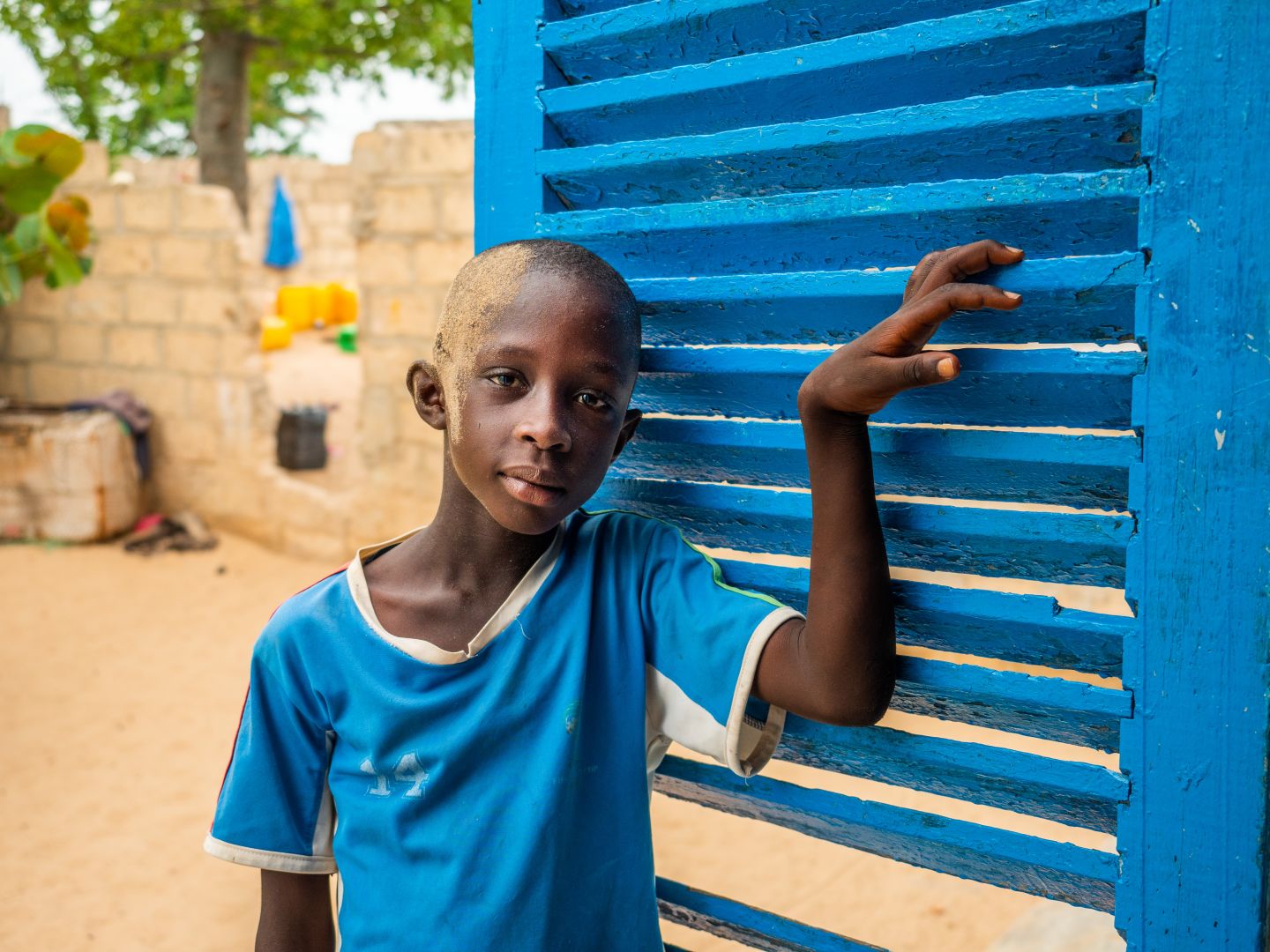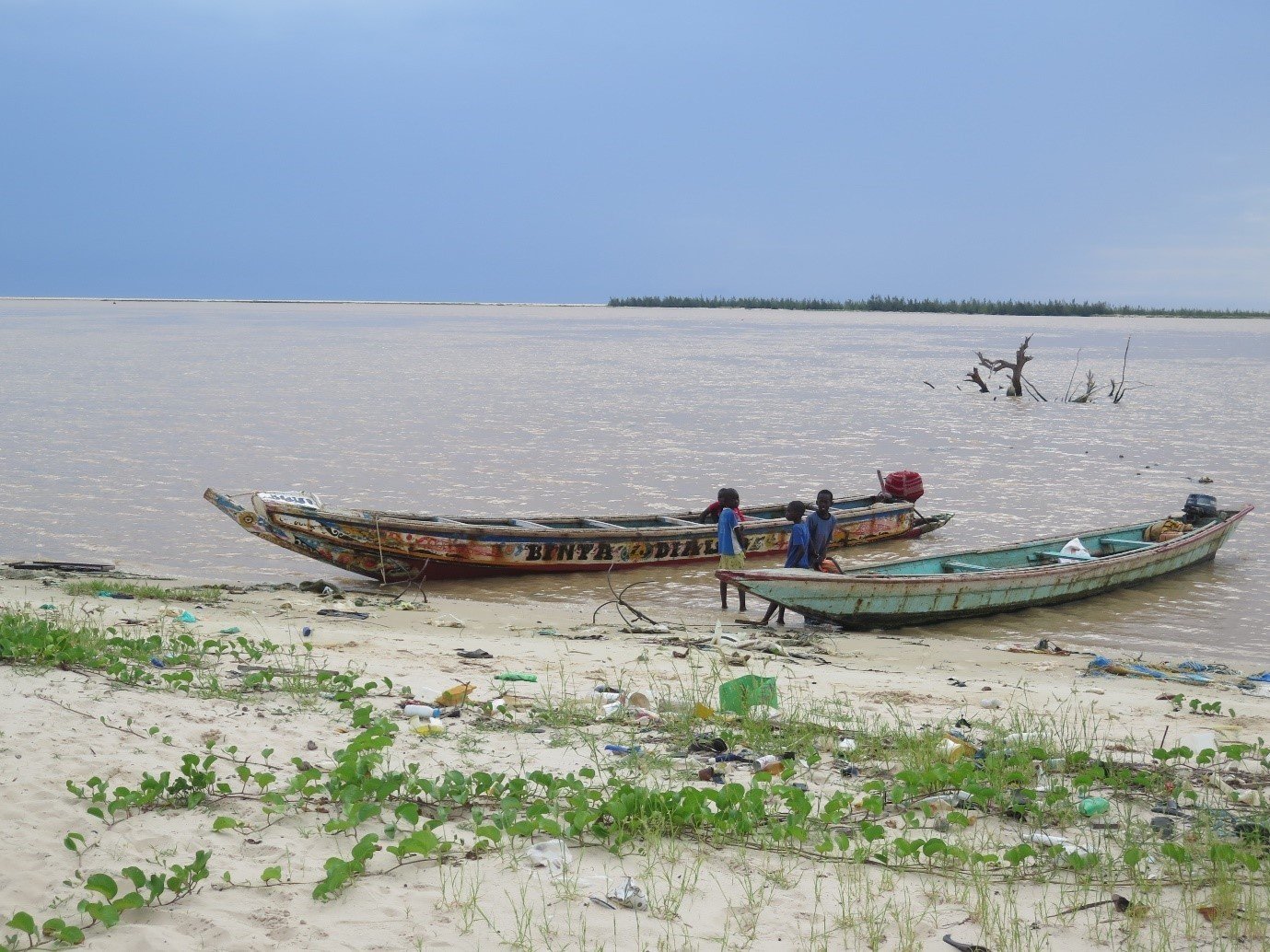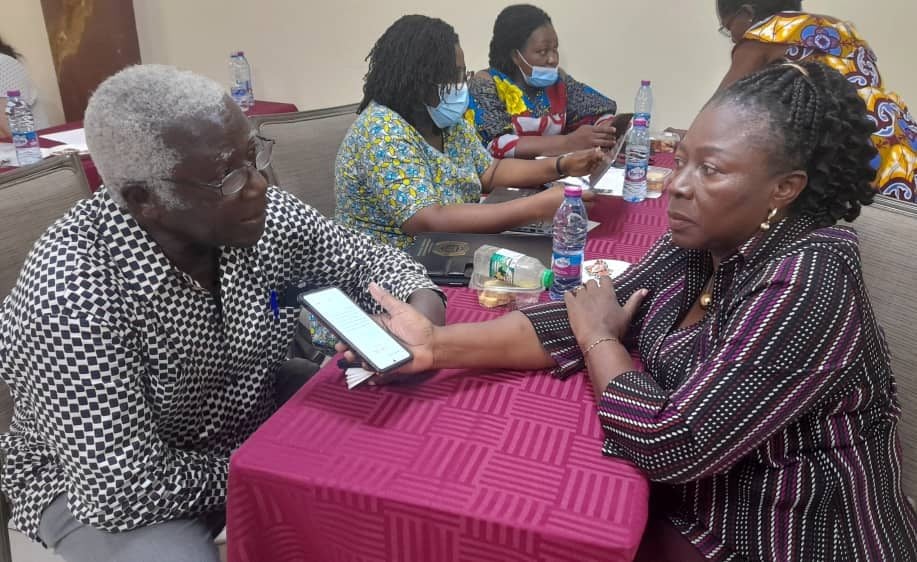Senegal
-
Main languages: French (official), Wolof, Serer, Pulaar, Diola (Jola), Mandinka, Soninké.
Main religions: Islam (94 per cent), Christianity, mostly Roman Catholicism (4 per cent), traditional beliefs (2 per cent).
Main minority groups: In July 2016 Senegal’s population was estimated at 14.3 million. As of 2010-2011, 38.7 per cent of the population were estimated to be Wolof; 26.5 per cent Pular/Peuhl; 15 per cent Serer; 4.2 per cent Mandinka; 4 per cent Diola/Jola; 2.3 per cent Soninke; and 9.3 per cent other (including Europeans and people of Lebanese descent). The UN Committee for the Elimination of All Forms of Racial Discrimination, in its Concluding Observations following its review of Senegal’s report in 2012, expressed regret at the lack of statistical data reflecting the ethnic makeup of the population.
The majority ethnic group is the Wolof, comprising nearly 39 per cent of the total population. Although French is the official language, it is generally only spoken by the educated elite. Wolof is the language most widely spoken, even by non-Wolof. Traditionally, Wolof are sedentary farmers, perhaps the descendents of people dispersed after the fall of the Ghana Empire (centred in present-day Mali) in the 11th century. They are concentrated along the coast in the northern part of Senegal. Most are Muslim.
Serer are concentrated in western Senegal and traditionally have farmed millet, rice and other agricultural products. Beyond their own language, many Serer also speak Wolof. Many are Roman Catholic.
The Peuhl are concentrated in the more arid north and are traditionally pastoralists. A sub-group, the Toucouleur, are settled agriculturalists living primarily in the Senegal River valley of the north. Both groups speak Pulaar, although the Toucouleur speak a distinct dialect. Most Peuhl and Toucouleur are Muslim, but some practice traditional beliefs or a syncretic mix of the two.
The Diola (Jola) are concentrated in the southern, forested Senegalese region of Casamance.
The Bassari are a numerically small ethnic group of around 8,800 concentrated in south-eastern Senegal, in addition to populations across the border in north-eastern Guinea, Bassari are more closely linked to groups in Guinea’s rainforest than with Muslims of the savanna. They are primarily hunters and gatherers with only limited cultivation and no pastoralism. Due to the isolation of their villages, Bassari were generally afforded protection from slave raiders, mainly the Peuhl. Until recently Bassari maintained their traditional religious and decentralized political systems, with an isolationist attitude towards their stronger, centralized Muslim neighbours.
Lebanese make up less than one per cent of the population. Migrants from Lebanon and Syria (both are called Lebanese locally) began to arrive in West Africa, including Senegal, in the late nineteenth century. This flow grew rapidly between the two World Wars when Lebanon was under French domination, and there was another influx beginning in 1975 due to Lebanon’s civil war. They established themselves as merchants and later diversified into real estate, transportation and light industry. Lebanese have historically preferred to export their earnings rather than invest in Senegal, causing friction between the government and the Lebanese community. Unlike some West African countries, Senegal allows Lebanese to obtain citizenship.
-
As in other parts of the Sahel region, agriculture, the basis of the economy in rural Senegal, has been adversely affected in recent years by the impact of climate change in the form of lower and less predictable rainfall, leading to increasing concerns about food insecurity and access to water. This has been compounded by an increase in private purchases of large tracts of arable land by national and international firms, with serious negative consequences on small-scale farmers and pastoralists.
In a similar trend, the government has been granting large-scale mining concessions to international companies without providing adequate voice or safeguards to those affected, including displaced communities. Meanwhile, rising sea levels combined with illegal sand mining and urbanization have in some places contributed to coastal erosion, threatening residents’ homes and livelihoods.
-
Environment
Senegal, continental Africa’s western-most country, has a 600-kilometre long coastline on the Atlantic Ocean. It borders Guinea-Bissau and Guinea in the south, Mali in the east, and Mauritania in the north. The thin sliver of The Gambia follows the river of the same name, nearly dividing the northern two-thirds of Senegal from its southern third. Tropical forests and mangroves in southern Senegal transition to savanna grasslands and then arid Sahel in the north. Senegal is an exporter of peanuts and other agricultural products, and has some mineral resources, notably phosphates.
History
Senegal has been inhabited by humans for many thousands of years. In around 800 C.E., there was an influx of Peuhl nobility from the east who established the kingdom of Tekrour. Almoravids entered the region from the north in the 11th century and converted the Tekrour king to Islam. The Tekrour kingdom was a rival to the Soninké based Ghana Empire to its east, centred in today’s Mali. The Tekrour and Almoravids joined forces to hobble the Ghana Empire, but the Almoravids withdrew and the Tekrour kingdom went into decline. The Mandinka-based Mali Empire flourished in the 13th and 14th centuries. A former vassal state of the Mali Empire, Waalo, expanded into the Jolof Empire in the 13th century. It encompassed Wolof and Serer lands in today’s western Senegal and Gambia, developing an intricate caste-based political system.
The Portuguese explorers were the first Europeans to make contact with Senegal in the 15th century, soon followed by Portuguese, Dutch and French traders. An extensive slave trade ensued, and imported European guns sharpened conflicts between rival kingdoms; food production suffered, resulting in occasional famines. France sent most slaves from Senegambia to its Caribbean colony of Saint-Domingue (present-day Haiti) in the 18th century. Although slavery was banned in 1848, France continued to pursue domination of Senegal and its exploitation for such cash crops as peanuts. It consciously sought to destroy the north-south trade that supported the African kingdoms, and toppled the Wolof and Serer states in the mid-19th century.
France established the political centre of French West Africa at Dakar and began building rail links that would make it the commercial hub of the French territories in the region. Many Senegalese took positions in the civil service of the French colonies, and some were granted French citizenship. Nevertheless, French rule faced strong resistance throughout Senegal, particularly in the southern Casamance region, where rebellions continued into the 1920s. Paris granted large peanut plantations to Islamic clerics, the leaders of Islamic Sufi brotherhoods, in order to secure their loyalty.
In 1959 Senegal was joined with the République Soudanaise (present-day Mali) to form the Mali Federation, and it is this entity that became independent from France on 20 June 1960. Senegal seceded from the Federation exactly two months later and Léopold Sédar Senghor was elected President.
Senghor, a Serer and a Catholic, was one of the most acclaimed poets in the French language in the 20th century. He espoused African socialism and maintained close relationships with the powerful Islamic brotherhoods and with France. Senghor was slow to transfer civil service jobs from French to African administrators, and the French population in Senegal actually increased after independence. Senghor instituted a one-party state under his Socialist Party, but was able to maintain political stability, in large measure through economic stability. Until 1967, France bought Senegal’s entire peanut crop at fixed prices. Discontent rose when the subsidies were curtailed, drought hit the Sahel in the late 1960s and into the 1970s, and world oil prices climbed. Senghor’s popularity waned as he opposed land reform that would threaten the peanut plantations of his backers in the Islamic brotherhoods. His brilliance as a poet did not extend to economics, and various development schemes resulted in failure and mounting debt. As dissent to his government grew in the early 1970s, Senghor became increasingly authoritarian. However, in 1976 he changed course and established a new, limited multi-party system. He then resigned in 1980, the first leader in Africa’s era of independence to yield power voluntarily.
Senghor’s hand-picked successor was Abdou Diouf, of Serer and Peuhl descent. Diouf liberalized the economy and introduced a full multi-party system. He was elected in his own right in 1983, then re-elected in fraudulent elections in 1988 and 1993. In 1994 he devalued the currency by 50 per cent, leading to economic pain for many Senegalese and unrest.
In 2000, long-time opposition leader and presidential candidate Abdolaye Wade, a Wolof, defeated Diouf in free and fair elections. Diouf accepted his defeat and Wade and his Senegalese Democratic Party ended 40 years of rule by the Socialist Party. Wade was re-elected in February 2007 with 56 per cent of the vote in the first round. He defeated Idrissa Seck, among others. Seck was Wade’s prime minister until he was dismissed in 2004 amid corruption allegations. In 2005 Senegal’s High Court of Justice dismissed additional charges that Seck had threatened national security. In 2006, Wade attempted to disqualify Seck from the presidential race due to the remaining corruption charges. In Senegal it is widely believed that the charges were politically motivated, as Seck was Wade’s greatest political rival.
Civic discontent with the Wade administration contributed to opposition parties’ success in municipal elections in 2009, after which journalists and civil society critics of the authorities came under increasing pressure. In 2011 President Wade, facing the end of his second and final term under the parameters of the Constitution, attempted to push through a constitutional amendment on the rules of presidential election but desisted in the face of popular protest. He later announced that he would run anyway. Human rights groups denounced arbitrary arrest and disproportionate use of force against peaceful demonstrators and opposition candidates by security forces of the Wade government in the run-up to February 2012 elections.
The 2012 election was won by opposition figure Macky Sall, whose coalition also won parliamentary elections later that year. Legislative elections are scheduled for 2017, and presidential polls for 2019.
Governance
Under President Abdoulaye Wade, Senegal passed a new Constitution by referendum in January 2001 that among other stipulations established a maximum limit of two presidential terms. For the first time, women were also allowed to own land. Senegal has a bicameral parliament consisting of a 150-seat National Assembly and a 100-seat Senate. In the latter, 35 members are elected and 65 are appointed by the president.
Generally, Senegal’s has maintained political stability and is one of the few countries in sub-Saharan Africa to avoid coups and military dictatorships. The Sufi clerics of the Islamic brotherhoods retain deep influence over Senegalese politics and the economy.
In 2010 Senegal became the first African nation to pass legislation classifying enslavement and slave trading as crimes against humanity. Despite a 1999 law criminalizing excisions, in 2015 the Human Rights Council Working Group on the issue of Discrimination against Women in law and in practice and the UN Committee on the Elimination of All Forms of Discrimination against Women both expressed concern that the practice persists, in part due to adverse cultural norms, attitudes and stereotypes.
-
AFEE (Association Femme Enfant Environnement)
Tel: +221-820-75-69African Institute of Human Rights
Tel: +221-215-646African League of Human Rights and the Rights of People
Tel: +221-821-26-98Amnesty International
Tel: +221 823 89 39ANAFA (Association Nationale pour l’Alphabetisation et la Formation des Adultes)
Tel : +221-855-9450ASED (Espace d’Aides Specialisees aux Eleves en Difficultes)
Tel: +221-854-04-00CAEDHU (Centre africain pour l’education aux droits humains)
Tel : +221-825-38-78GRA-REDEP (Groupe Agora pour l’education aux droits de l’enfant et à la paix)
Tel: +221-827-1213Institute for Human Rights and Peace
Tel: +221-824-98-82Organisation nationale des droits de l’homme (ONDH)
Tel: +221-822-28-00RADI (Reseau africain pour le developpement integre)
Tel: +221-824-33-37Rencontre Africaine pour la Défense des Droits de l’Homme
Tel: +221-824-60-59, 221-865-00-30
Updated November 2017
Related content
Latest
-

4 December 2019
An African perspective on migrants and migration in Senegal
Photo: A child pauses for a photo in Saint Louis, Senegal. © Jana Cavojska By Hamimu Masudi, Media Officer at Minority Rights Group…
-

13 November 2019
Senegal: the impact of the climate crisis on the fisher community of St. Louis
By Carl Söderbergh, Director of Policy and Communications at Minority Rights Group International How to describe an absence? That was the…
Reports and briefings
-
1 November 1981
Female circumcision, excision and infibulation
In Africa today, women’s voices are being raised for the first time against genital mutilations still practised on babies, little…
-
1 January 1979
Nomads of the Sahel
In 1973 an international disaster was declared in the Sahelian countries of West Africa (Mauritania, Senegal, Mali, Upper Volta, Niger and…
Programmes
-
- West Africa
- Media
Don’t miss out
- Updates to this country profile
- New publications and resources
Receive updates about this country or territory
-
Our strategy
We work with ethnic, religious and linguistic minorities, and indigenous peoples to secure their rights and promote understanding between communities.
-
-

